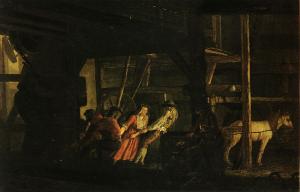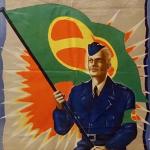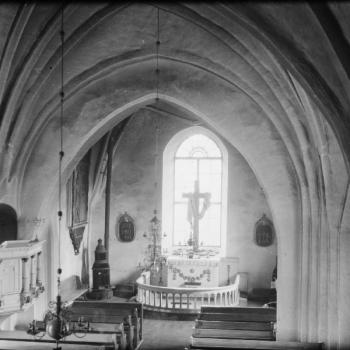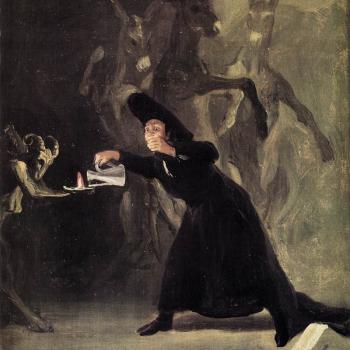
Life is hard. Everyday we wake up and do it again, coffee in hand moments after dusting ourselves off from a half-sleepless night. We work; we try to pray. But, in the end, each day is often hard. The abstractions of faith dominate most discussions of the religion that’s supposed to keep us grounded. Politics, in many cases, is much the same. Who can retain faith and hope under such circumstances? Who can face down a corrupt, fallen world and do anything but acquiesce? Abuse abounds. Internal politicking divides. Where is God in all of this?
Asking myself these questions had led me to consider a new series for this blog—“Living Saints.” Each of these posts will deal with one person, one living or recently living person who reminds us what sainthood looks like, what form love and grace take in this deranged society, in this hellscape in which people die from lack of insulin, Satanic temples stage black masses, and war destroys lives. It’s easier to flip another driver the bird or scream at your family than to keep the faith or hold onto hope. “Living Saints” seeks to offer an oasis in the desert, wishes to provide locusts and wild honey in the wasteland of modern capitalist life.
My first example: Frances, my grandmother. I admire her so fervently that I hope to get to name a son or daughter after her (as a lover of St. Francis of Assisi and a son of a man named Frank, the name really hits all the right notes). She is 88; she is, without exception, the most wonderful woman with whom I have spent any decent amount of time.
Born in coal country Pennsylvania during the Depression, my grandmother was one of thirteen children from two marriages. Both her father and her stepfather were drunks and, as I understand it, could be verbally abusive. She began waiting tables aged 13, offering some small help to her mother who was, by that time, mostly raising her and her siblings alone. Her father, you see, ran off to be with another woman (whose name he then got tattooed on his arm, embedded in a heart—like one of those old sailor tattoos that read “Mom”). Her stepfather had, I believe, died.
Working meant dropping out of school after the eighth grade. This meant a loss of innocence, one conveniently distillable to a single story: she left work early one day (or skipped out) to walk to a local dance (let’s imagine it was in a barn: one, it probably was and two it’s more essentially itself that way). She returned to work to find herself fired: how dare she leave! The cook, who may or may not have been the owner’s brother (I can’t recall) threatened to quit if she were fired. And so, she was kept on—a lesson in both loss and solidarity.
As a young woman, she moved to New Jersey with her sister; she got a job at White Castle and sent money home to help her family get by (not unlike many immigrants to the US today, though they wire money over national borders, rather than state ones). She met my grandfather, a World War II veteran, and, after several moves (including to upstate New York), found herself living on the main drag of a small town in New Jersey. They had three children, one of whom was my mother.













